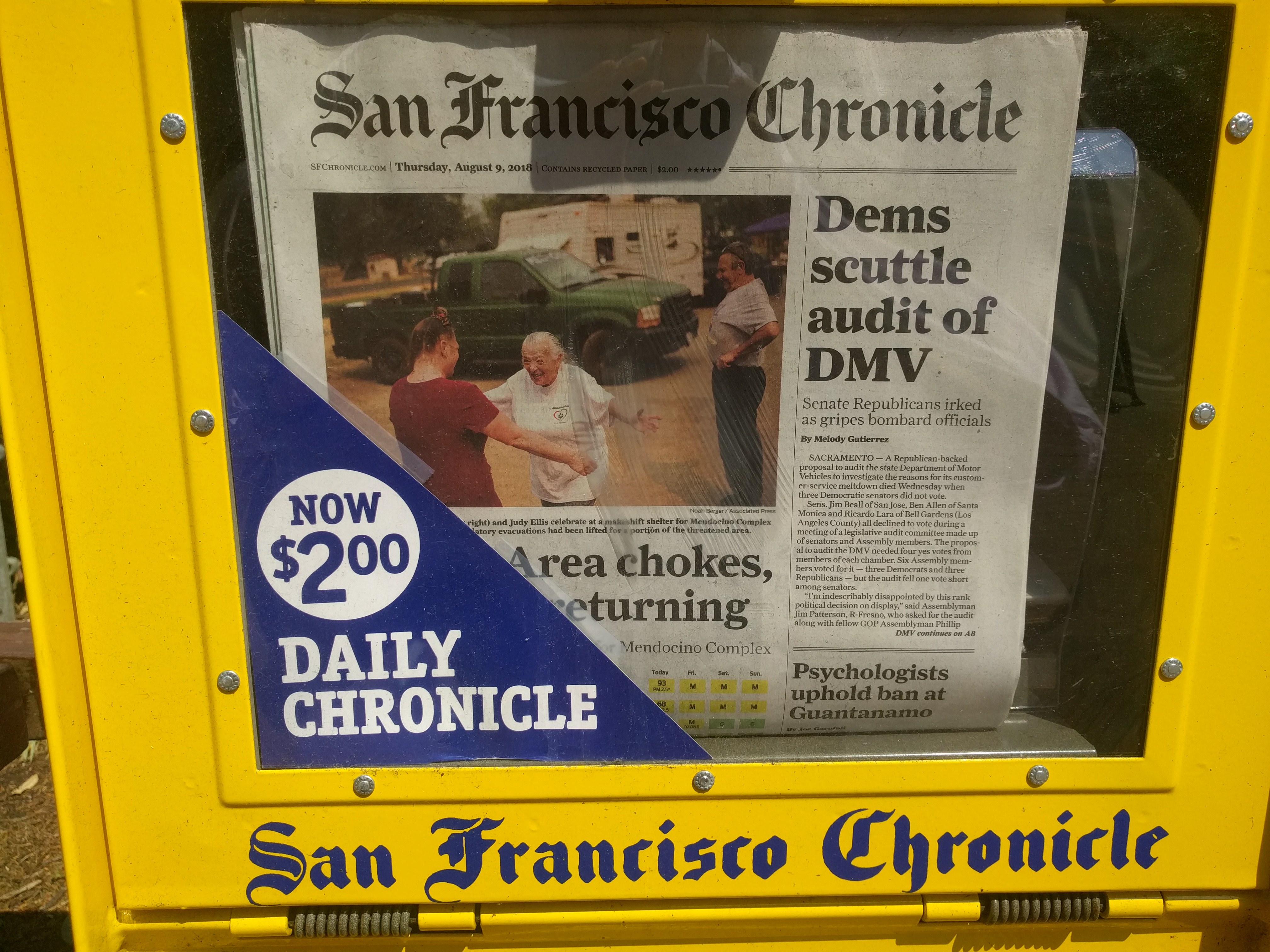The great American newspapers have shot themselves in the foot. In the race against online media and decentralized user-based content, when they haven’t been bought up by conglomerates with the intention to destroy them or use them as organs of ideology, newspapers have repeatedly cranked up the sensationalism, obscured good reporting with blaring ads, and made themselves irrelevant.

The San Francisco Chronicle, our stalwart liberal rag of the Bay Area, regularly obscures its first page with these cover-up inserts that blot out half of the cover with some strident mock-serious ad. While of course they are doing this (1) to obscure the content so people have to buy the paper to read the front page, and moreover, (2) for much-needed revenue, this is a losing proposition. In an era where content is given away for free in order to produce a sale—the shrewd notion of free tasters to lure in the curious, obscuring your headlines deaden curiosity by the miserly action of deliberately obscuring the little free content newspapers show on the upper half of the first page.
Revenue can be had through special offers and tie-ins with exclusive companies. Exclusivity should go hand-in-hand with exquisite reporting. Truly unique newspapers, which provide novel rather than recycled content, have thick social capital that they can draw on for higher ad prices, for special offers with honored establishments, affiliate programs, and other arbiters of power. This, rather than sales, is really the primary income stream. But the moment that quality goes down, that uniqueness becomes a liability rather than a treasure, and conformity to the sterile standards of NewsCorp reigns, newspapers become desperate enterprises. They scramble in shambles to keep up the facade of sophistication while serving up only fluff—and still are bemused at dwindling readerships and relevance. Relevance is a self-fulfilling prophecy. Investigative journalism, thoughtful, unorthodox yet principled reporting, and the courage to take stands on controversial issues for the sake of the polity define and build the reputation of news businesses.
Diversity in news reporting is needed now more than ever. The dilution of debate to shrill assertions of opinion, often attached with ad hominum uncivil behavior has overwhelmed the 4th estate as fake news. Like the replacement of fact with self-interested, self-promoting fiction (oleaginously patinated as “alternative facts”) has become a major force in monopoly-controlled news companies. The notion of the “free press” even sounds quaint in 2018. While some online groups like Civil aim to harness the trust-embedded authentication of blockchain to develop a new form of press, at best, one has to choose and pick from the grey literature amongst the deluge of SEO (search engine optimized) websites that pay and play to have higher Google rankings. Thus, whatever real journalism that exists, in our quixotic market economy, gets buried at the bottom; while the froth and disinformation rises to the top (in part, because it is financially interested to a magnitude that real journalism never has been and never could be).
So, to remake themselves, brick-and-mortar news agencies producing physical (and electronic) products, must lean in to Cory Doctorow’s adage that “Information doesn’t want to be free. People do.” This means giving people the best news agencies have to offer, for free, if possible, with longer, more detailed versions available for purchase (or for favors, such as re-posting, affiliate programs, etc.). Countless creative win-win concepts exist for the flagging newspaper business—if only they take the moral, political, and economic high-ground and learn to adapt rather resist our strange new information environment.